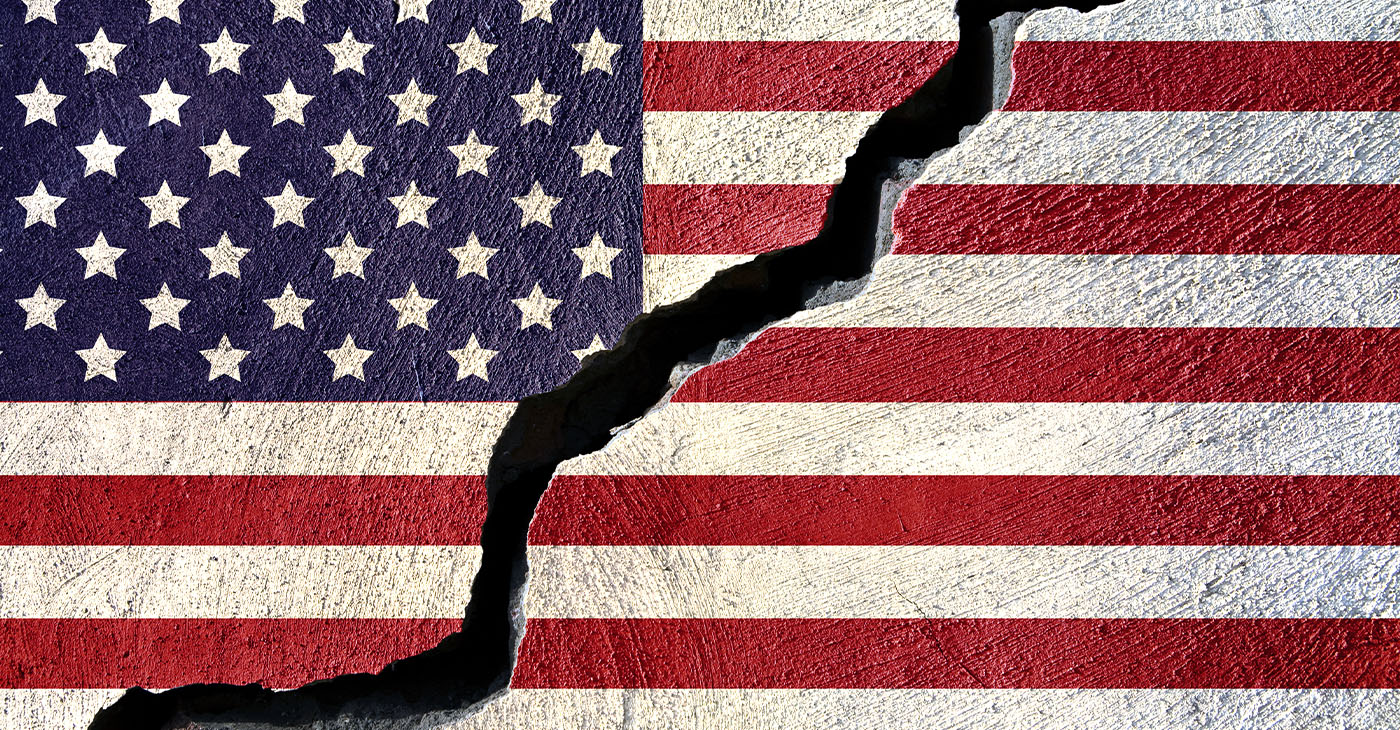#NNPA BlackPress
Congresswoman Maxine Waters Statement at Historic Diversity and Inclusion Subcommittee Hearing
NNPA NEWSWIRE — The Subcommittee on Diversity and Inclusion, created by Chairwoman Waters and led by Congresswoman Joyce Beatty (D-OH), Chairwoman of the Subcommittee on Diversity and Inclusion, is the first of its kind in Congress, dedicated to looking at diversity and inclusion issues under the Committee’s jurisdiction.
WASHINGTON – On Wednesday, the House Financial Services Committee’s Subcommittee on Diversity and Inclusion convened its first hearing, entitled “An Overview of Diversity Trends in the Financial Services Industry,” with Daniel Garcia-Diaz, Director, Financial Markets and Community Investment, U.S. Government Accountability Office.
During the hearing, Congresswoman Maxine Waters (D-CA), Chairwoman of the House Financial Services Committee, discussed the importance of examining the systemic exclusion of women, people of color, persons with disabilities, LGBTQ+ individuals, veterans, and other members of society who have to fight for a seat at the table.
The Subcommittee on Diversity and Inclusion, created by Chairwoman Waters and led by Congresswoman Joyce Beatty (D-OH), Chairwoman of the Subcommittee on Diversity and Inclusion, is the first of its kind in Congress, dedicated to looking at diversity and inclusion issues under the Committee’s jurisdiction.
See Chairwoman Waters’ opening statement at yesterday’s hearing and her exchange with the witness below.
Chairwoman Waters’ Opening Statement:
“Thank you very much, Madam Chair. Today we are convening for the first time the Subcommittee on Diversity and Inclusion, which will examine and resolve the systemic economic exclusion of women, people of color, persons with disabilities, LGBTQ+ individuals, veterans, and other members of our society who have to fight for a seat at the table.
“I’m pleased that the Subcommittee is beginning with this hearing on an issue that has stymied the financial services industry, including women and minorities in management.
“Beginning in February 2005, 14 years ago, the Financial Services Committee requested that the GAO review diversity trends in the financial services industry. In 2006, GAO looked at diversity from 1993 to 2004 and reported that the percentage of minorities in management rose from 11.1 percent to 15.5, with the percentage of African-Americans rising from 5.6 percent to 6.6 percent.
“GAO has since updated its report several times. In GAO’s most recent report covering 2007 to 2015, minority representation increased from 17 percent to 21 percent. However, the percentage of African-Americans in senior roles decreased from 6.5 percent to 6.3 percent and all minorities continue to be underrepresented.
“For years, policymakers, diversity advocates, and diverse professionals in the financial services industry have sent the message that diversity and inclusion must be more than words—they require action and resolve. Unfortunately, the data shows that the financial services industry lacks both.
“Today, this Subcommittee begins the process of shining light on these trends and begins its work to improve the industry so that our financial system works for everybody.
“I am so pleased that Ms. Beatty has taken the leadership on this Diversity Subcommittee. There’s nobody, no one else, who can do a job better than she can.”
Watch Chairwoman Waters’ Q&A with Daniel Garcia-Diaz below:
#NNPA BlackPress
Remembering George Floyd
#NNPA BlackPress
OP-ED: Oregon Bill Threatens the Future of Black Owned Newspapers and Community Journalism
BLACKPRESSUSA NEWSWIRE — Nearly half of Oregon’s media outlets are now owned by national conglomerates with no lasting investment in local communities. According to an OPB analysis, Oregon has lost more than 90 news jobs (and counting) in the past five years. These were reporters, editors and photographers covering school boards, investigating corruption and telling community stories, until their jobs were cut by out-of-state corporations.

By Dr. Benjamin F. Chavis, Jr.
President and CEO, National Newspaper Publishers Association
For decades, The Skanner newspaper in Portland, the Portland Observer, and the Portland Medium have served Portland, Oregon’s Black community and others with a vital purpose: to inform, uplift and empower. But legislation now moving through the Oregon Legislature threatens these community news institutions—and others like them.
As President and CEO of the National Newspaper Publishers Association (NNPA), which represents more than 255 Black-owned media outlets across the United States—including historic publications like The Skanner, Portland Observer, and the Portland Medium—l believe that some Oregon lawmakers would do more harm than good for local journalism and community-owned publications they are hoping to protect.
Oregon Senate Bill 686 would require large digital platforms such as Google and Meta to pay for linking to news content. The goal is to bring desperately needed support to local newsrooms. However, the approach, while well-intentioned, puts smaller, community-based publications at a future severe financial risk.
We need to ask – will these payments paid by tech companies benefit the journalists and outlets that need them most? Nearly half of Oregon’s media outlets are now owned by national conglomerates with no lasting investment in local communities. According to an OPB analysis, Oregon has lost more than 90 news jobs (and counting) in the past five years. These were reporters, editors, and photographers covering school boards, investigating corruption, and telling community stories, until their jobs were cut by out-of-state corporations.
Legislation that sends money to these national conglomerate owners—without the right safeguards to protect independent and community-based outlets—rewards the forces that caused this inequitable crisis in the first place. A just and inclusive policy must guarantee that support flows to the front lines of local journalism and not to the boardrooms of large national media corporations.
The Black Press exists to fill in the gaps left by larger newsrooms. Our reporters are trusted messengers. Our outlets serve as forums for civic engagement, accountability and cultural pride. We also increasingly rely on our digital platforms to reach our audiences, especially younger generations—where they are.
We are fervently asking Oregon lawmakers to take a step back and engage in meaningful dialogue with those most affected: community publishers, small and independent outlets and the readers we serve. The Skanner, The Portland Observer, and The Portland Medium do not have national corporate parents or large investors. And they, like many smaller, community-trusted outlets, rely on traffic from search engines and social media to boost advertising revenue, drive subscriptions, and raise awareness.
Let’s work together to build a better future for Black-owned newspapers and community journalism that is fair, local,l and representative of all Oregonians.
Dr. Benjamin F. Chavis Jr., President & CEO, National Newspaper Publishers Association
#NNPA BlackPress
Hate and Chaos Rise in Trump’s America
BLACKPRESSUSA NEWSWIRE — Tactics ranged from local policy manipulation to threats of violence. The SPLC documented bomb threats at 60 polling places in Georgia, traced to Russian email domains.

By Stacy M. Brown
Black Press USA Senior National Correspondent
The Southern Poverty Law Center has identified 1,371 hate and antigovernment extremist groups operating across the United States in 2024. In its latest Year in Hate & Extremism report, the SPLC reveals how these groups are embedding themselves in politics and policymaking while targeting marginalized communities through intimidation, disinformation, and violence. “Extremists at all levels of government are using cruelty, chaos, and constant attacks on communities and our democracy to make us feel powerless,” said SPLC President Margaret Huang. The report outlines how hard-right groups aggressively targeted diversity, equity, and inclusion (DEI) initiatives throughout 2024. Figures on the far right falsely framed DEI as a threat to white Americans, with some branding it a form of “white genocide.” After the collapse of Baltimore’s Francis Scott Key Bridge, a former Utah legislator blamed the incident on DEI, posting “DEI = DIE.”
Tactics ranged from local policy manipulation to threats of violence. The SPLC documented bomb threats at 60 polling places in Georgia, traced to Russian email domains. Similar threats hit Jewish institutions and Planet Fitness locations after far-right social media accounts attacked them for trans-inclusive policies. Telegram, which SPLC describes as a hub for hate groups, helped extremists cross-recruit between neo-Nazi, QAnon, and white nationalist spaces. The platform’s lax moderation allowed groups like the Terrorgram Collective—designated terrorists by the U.S. State Department—to thrive. Militia movements were also reorganized, with 50 groups documented in 2024. Many, calling themselves “minutemen,” trained in paramilitary tactics while lobbying local governments for official recognition. These groups shared personnel and ideology with white nationalist organizations.
The manosphere continued to radicalize boys and young men. The Fresh & Fit podcast, now listed as a hate group, promoted misogyny while mocking and attacking Black women. Manosphere influencers used social media algorithms to drive youth toward male-supremacy content. Turning Point USA played a key role in pushing white nationalist rhetoric into mainstream politics. Its leader Charlie Kirk claimed native-born Americans are being replaced by immigrants, while the group advised on Project 2025 and organized Trump campaign events. “We know that these groups build their power by threatening violence, capturing political parties and government, and infesting the mainstream discourse with conspiracy theories,” said Rachel Carroll Rivas, interim director of the SPLC’s Intelligence Project. “By exposing the players, tactics, and code words of the hard right, we hope to dismantle their mythology and inspire people to fight back.”
Click here for the full report or visit http://www.splcenter.org/resources/guides/year-hate-extremism-2024.
-

 #NNPA BlackPress3 weeks ago
#NNPA BlackPress3 weeks agoMLK Bust Quietly Removed from Oval Office Under Trump
-

 Activism4 weeks ago
Activism4 weeks agoOakland Post: Week of April 30 – May 6, 2025
-

 Activism3 weeks ago
Activism3 weeks agoOakland Post: Week of May 7 – 13, 2025
-

 #NNPA BlackPress3 weeks ago
#NNPA BlackPress3 weeks agoTrump Abruptly Fires First Carla Hayden: The First Black Woman to Serve as Librarian of Congress
-

 Activism2 weeks ago
Activism2 weeks agoNew Oakland Moving Forward
-

 Activism2 weeks ago
Activism2 weeks agoAfter Two Decades, Oakland Unified Will Finally Regain Local Control
-

 Activism2 weeks ago
Activism2 weeks agoOakland Post: Week of May 14 – 20, 2025
-

 Alameda County2 weeks ago
Alameda County2 weeks agoOakland Begins Month-Long Closure on Largest Homeless Encampment






















































1 Comment